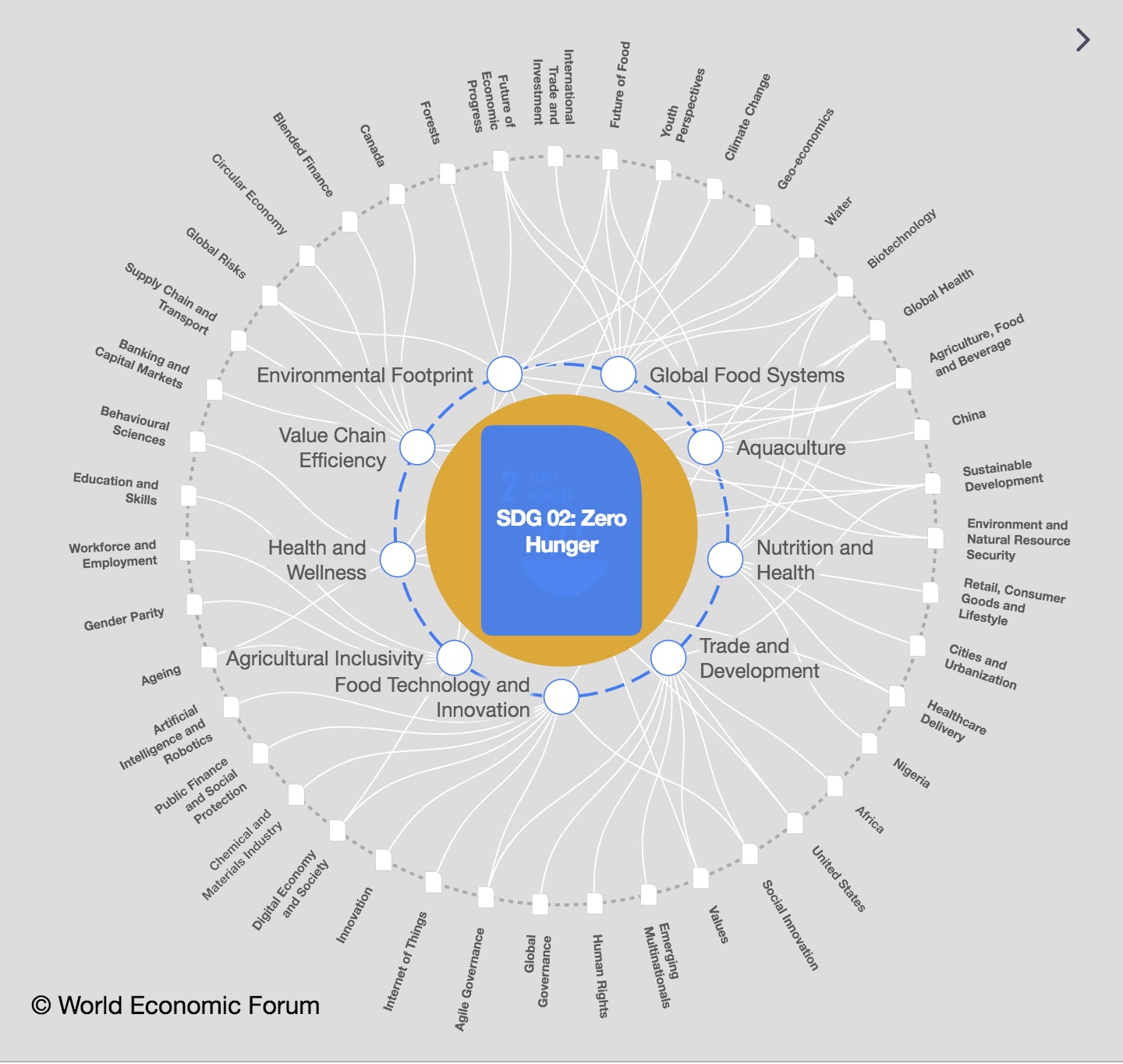This is how COVID-19 has affected world hunger

21% of people in Africa are undernourished. Image: REUTERS/Adnan Abidi

Get involved with our crowdsourced digital platform to deliver impact at scale
Stay up to date:
SDG 02: Zero Hunger
- World hunger and malnutrition levels worsened dramatically last year, due to the COVID-19 pandemic, says the U.N.
- Its new report shows that the number of undernourished people rose to around 768 million last year, equivalent to 10% of the world's population.
- This was up by 118 million, compared to 2019.
- In Africa, 282 million people or 21% of its population are undernourished, more than double that of any other region.
- The report concluded that the U.N. Sustainable Development Goal of Zero Hunger by 2030 will be missed by a margin of nearly 660 million people.
World hunger and malnutrition levels worsened dramatically last year, with most of the increase likely due to the COVID-19 pandemic, according to a multi-agency United Nations (U.N.) report published on Monday.
After remaining virtually unchanged for five years, the number of undernourished people rose to around 768 million last year - equivalent to 10% of the world's population and an increase of around 118 million versus 2019, the report said.
Authored by U.N. agencies including the Food and Agriculture Organization (FAO), the World Food Programme (WFP) and the World Health Organisation (WHO), the report is the first comprehensive assessment of food insecurity and nutrition since the pandemic emerged.
"Unfortunately, the pandemic continues to expose weaknesses in our food systems, which threaten lives and livelihoods. No region of the world has been spared," the agencies said in a joint statement.
The 2021 edition of "The State of Food Security and Nutrition in the World" estimated that on current trends, the U.N. sustainable development goal of zero hunger by 2030 will be missed by a margin of nearly 660 million people.

That number is 30 million higher than in a scenario where the pandemic had not occurred.
"Our worst fears are coming true. Reversing such high levels of chronic hunger will take years if not decades," said WFP chief economist Arif Husain.
There is increased diplomatic momentum this year to tackle hunger and malnutrition with upcoming summits like the U.N. Food Systems Summit and the Nutrition for Growth Summit. But the report stressed the challenge was huge.
The number of people unable to access adequate food year-round rose by 320 million to 2.37 billion last year – a rise in one year equal to the preceding five years combined.
Of the 768 million undernourished people, 418 million were in Asia, 282 million in Africa and 60 million in Latin America and the Caribbean. In Africa, 21% of people are undernourished, more than double that of any other region.
"In a world of plenty, we have no excuse for billions to lack access to a healthy diet. This is why I’m convening a global Food Systems Summit this September," said U.N secretary general António Guterres.
"(Investing in) changes in our food systems will initiate a shift to a safer, fairer, more sustainable world. It is one of the smartest – and most necessary investments we can make," he added.
After declining for several decades, food insecurity has been on the rise since the mid-2010s, especially in countries affected by conflict, climate extremes, economic downturns, or battling high income inequality.
What is the World Economic Forum doing to help ensure global food security?
WFP chief David Beasley said while 41 million people are currently at risk of starving to death, the combined net worth of the world's billionaires is increasing by around $5.3 billion per day - the same amount needed to save the lives of those starving the world over.
"The fact that we're begging and screaming (for funds) is a disgrace on the face of humanity," he said.
Reporting by Maytaal Angel Editing by Hugh Lawson and Mark Potter
Don't miss any update on this topic
Create a free account and access your personalized content collection with our latest publications and analyses.
License and Republishing
World Economic Forum articles may be republished in accordance with the Creative Commons Attribution-NonCommercial-NoDerivatives 4.0 International Public License, and in accordance with our Terms of Use.
The views expressed in this article are those of the author alone and not the World Economic Forum.
Related topics:
The Agenda Weekly
A weekly update of the most important issues driving the global agenda
You can unsubscribe at any time using the link in our emails. For more details, review our privacy policy.
More on Food and WaterSee all
Abhay Pareek and Drishti Kumar
April 23, 2024
Johnny Wood
April 15, 2024
Charlotte Edmond
April 11, 2024
Brian D’Silva and Abir Ibrahim
March 19, 2024
Lorna De Leoz
March 14, 2024






